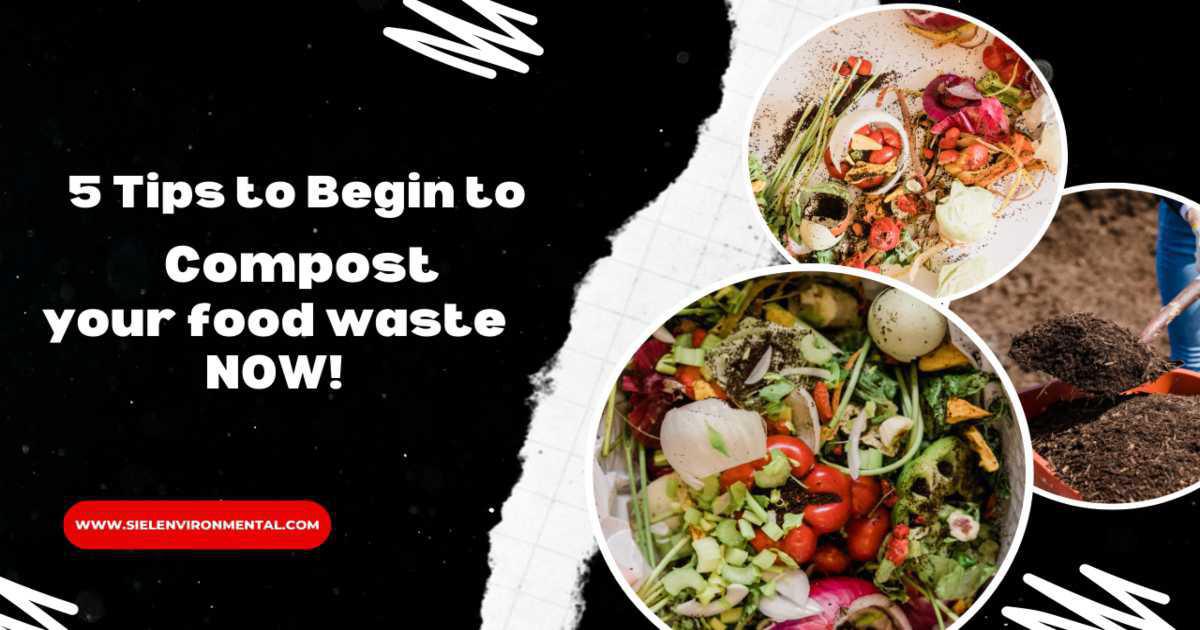Welcome back to our ongoing talks on responsible food waste management! In our previous blog, “4 Tips to Manage Food Waste Responsibly,” we delved into 4 main strategies to minimize waste and make a positive impact on our environment. Today, we turn our attention to one of those essential tips: composting. Composting, a powerful tool in nurturing nature’s cycle, holds the key to transforming our food scraps into valuable resources. Ever wanted to get started? Here are 5 tips to begin to compost your food waste NOW:
Tip 1: Separate and Collect Food Scraps:
Start by designating a separate container, such as a compost bin or bucket, basically any bowl you can use with a cover, specifically for collecting food scraps. These can include fruit and vegetable peels, coffee grounds, tea bags, eggshells, and even small amounts of leftover cooked food. By keeping food waste separate, you prevent it from ending up in landfills because they are the culprits of smelly garbage.
Tip 2: Build a Compost Pile or Bin:
Choose a suitable location in your backyard or garden for your compost pile or bin. It should be well-drained, easily accessible, and away from direct sunlight to prevent the compost from drying out. Consider investing in a compost bin to contain the waste neatly and facilitate the composting process.
Tip 3: Create the Ideal Composting Environment:
Composting requires the right balance of organic materials, moisture, and air. Aim for a mix of green (nitrogen-rich) and brown (carbon-rich) materials. Green materials include food scraps, grass clippings, and fresh garden waste, while brown materials consist of dry leaves, wood chips, and shredded paper. Also, ensure your compost pile is adequately moist and introduce air occasionally to allow for proper flow. Getting the mix right is key to making nutrient-rich compost.
Tip 4: Avoid Composting Certain Items:
While many organic materials can be composted, there are a few exceptions. At the top of that list are meat and dairy products as they can attract pests or cause odours. There are more but those are the top two.
Tip 5: Maintain and Use Your Compost:
Regular maintenance is essential for successful composting. Monitor the moisture level and adjust as necessary, ensuring it remains moist but not waterlogged. After a few months, your compost will transform into dark, crumbly, and earthy-smelling material. This nutrient-rich compost can be used to enrich your garden soil, potting mix, or as a top dressing for existing plants.
By incorporating these five tips, you can begin to compost your food waste now but also make a significant impact on reducing food waste while creating valuable compost for a healthier environment. And if you want to learn the process involved in composting, we have an amazingly quick, self-paced and 100% online course called Composting for Tropical Climates that you can do on your own time. Best benefit? You have lifetime access. Yes, you read that right!!!
Remember, composting is not only a sustainable practice but also an opportunity to give back to the earth by replenishing its nutrients. So, let’s turn our food waste into a precious resource and pave the way for a greener, more sustainable future. Start composting today and be part of the solution!
*This Eco-Learn article is made possible through the 'Doh Waste Good Food' Campaign - a Food Waste management campaign conducted in collaboration with Siel Environmental.

